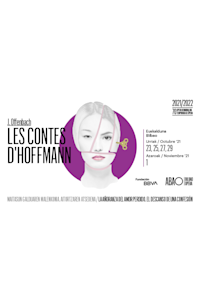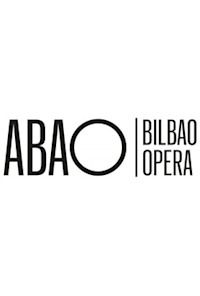In the Prologue, the soprano Stella is successfully singing in a performance of Mozart’s Don Giovanni at the Opera House. The performance has already started and another woman, the Muse, is looking everywhere for Hoffmann, the poet, musician and composer that is praised by everyone, and especially by her, who wants to be his muse, but decides to assume the identity of his best friend, Nicklausse, so as to be near him. Hoffmann is nowhere to be seen in the midst of the alcoholic fumes, barely dissipated by the arrival of Hoffmann’s gloomy rival, Lindorf, who courts Stella. During the interval, a cheerful group of people arrive in the tavern run by Luther, and sing various toasts and encourage Hoffmann to do the same. When the second act of Don Giovanniis about to start, Hoffmann starts to talk about his love affairs and tells the stories of the three women he has loved.
Act I focuses on Olympia. Professor Spalanzani organizes a grand soiree to present his daughter Olympia to the world. Olympia is a mechanical doll that looks like a real woman. The young Hoffmann has only seen her from afar, but has fallen deeply in love with her. Nicklausse makes fun of this passion, whereas Coppélius, who made the doll’s eyes for Spalanzani, encourages it. Under the impatient look of numerous guests, Olympia performs an extremely virtuosic aria. Everyone applauds the prodigious singer, but her success will not last long, because Coppélius takes revenge on Spalanzani for not having paid for his work. Olympia does not survive, which makes Hoffmann realize that the professor’s daughter was not a real person, but just an automaton.
The female protagonist of Act II is Antonia, who has inherited her mother’s magnificent voice, but this gift comes with an incurable disease: she cannot sing without being at risk of dying. To protect her, Crespel, her father, afraid of her ending like her mother, who was a singer, tries to keep her away from the world of music and forbids her to meet Hoffmann. However, he manages to meet his beloved thanks to the young Frantz and learns about her state of health. While Antonia renounces her dreams of a career in music and the glory of fame, Doctor Miracle invokes the memory of her dead mother to make her sing as she has never done before. Carried away by the intoxication of music, she falls dead in the presence of her father and her lover.
After Antonia’s death, Hoffmann relinquishes love and lives only for pleasure. He then goes to Venice, where the protagonist of Act III, Giulietta, reigns in the middle of a phantasmagorical court, surrounded by her condemned soul, Captain Dapertutto, her favourite young man, Pitichinaccio, and her downhearted admirer, Schlémil. To hurt Hoffmann’s pride, Dapertutto asks Giulietta to seduce him, as she did with Schlémil, who has lost his shadow. Hoffmann quickly gives in to her charms and the infernal couple push him to kill his rival Schlémil. He must then leave Venice, but the courtesan asks for his reflection, as a proof of love. When she obtains it, she sends him away and mocks him, together with Pitichinaccio, who is killed by Hoffmann, blinded by rage.
In the Epilogue, Hoffmann’s story concludes at the same time as the performance of Don Giovanni. The Muse understands that Olympia, Antonia and Giulietta are Stella’s different avatars. She expects to meet Hoffmann in his balcony, but he prefers to ignore her: he already knows that suffering and loneliness are the price of art. To conclude, the Muse chants the moral of the story: “We are made great by love and greater still by our tears”.







